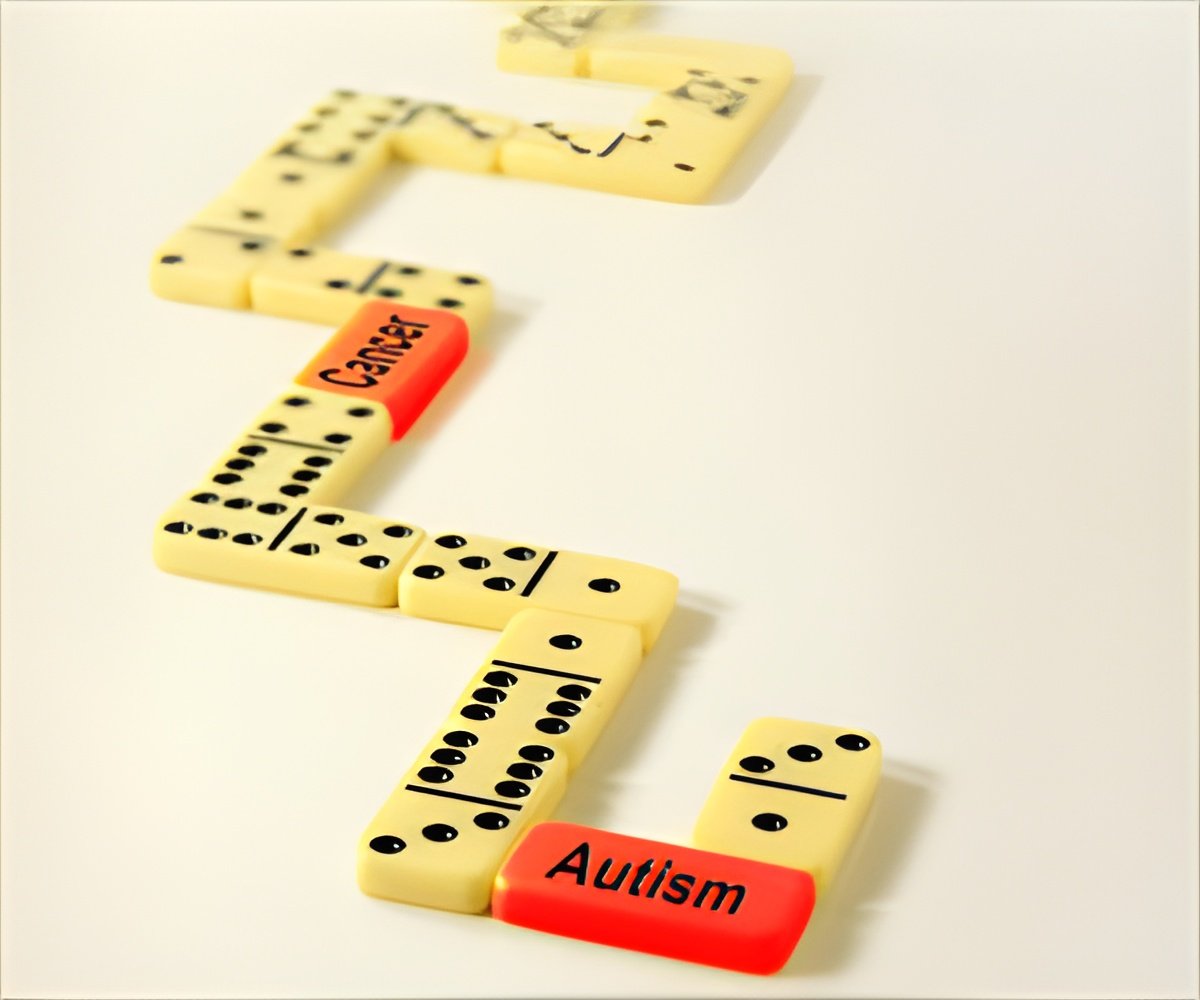The role of SHANK proteins in brain development and tumor invasion has been identififed establishing an unexpected link between autism and cancer.

- SHANK protein prevents the ability of cancer cells to adhere and migrate to surrounding tissue.
- But in autism there is the absence or gene mutations associated with SHANK proteins.
- Gene mutations in SHANK, found in autistic patients, impair SHANKs ability to prevent the adherence of both neurons and breast cancer cells.
The SHANK protein has been previously been intensively studied in several processes in the central nervous system, and it is known that its absence or gene mutations are related to autism.
The findings revealed that in autistic patients with gene mutations in SHANK, impairs the ability of SHANK to prevent the adherence of both neurons and breast cancer cells.
Rap1 proteins activate cell adhesion receptors called integrins.
In cell culture experiments, the researchers found that SHANK protein limits the ability of the protein called Rap1 to activate integrins.
The same mechanism that regulated cancer cell motility is applicable to the morphology and branching of neurites, known to be essential for normal brain function.
The findings were published in Nature Cell Biology.
Reference
- Igor Barsukov et al. SHANK proteins limit integrin activation by directly interacting with Rap1 and R-Ras. Nature Cell Biology; (2017) doi:10.1038/ncb3487
Source-Medindia









